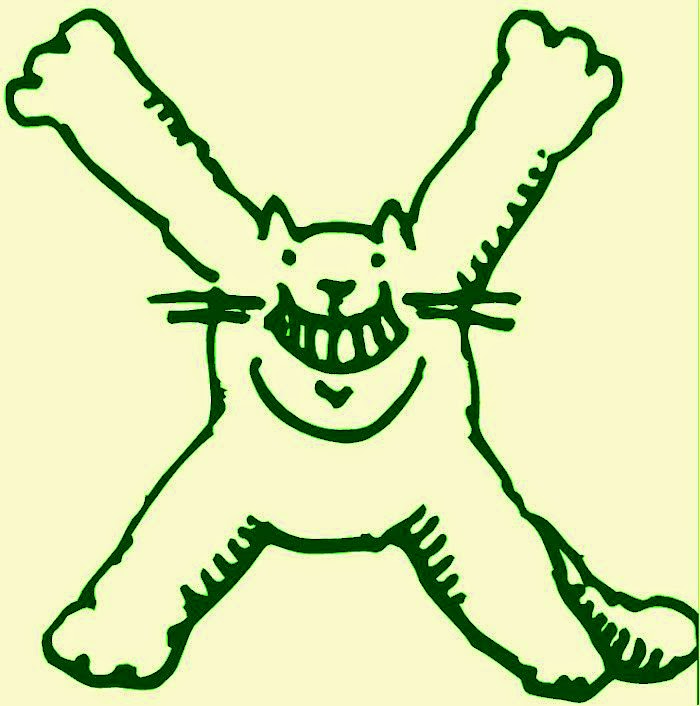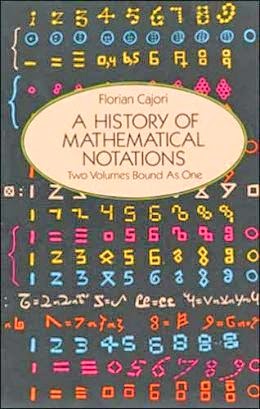Philosophy

by
Lauren Davis
June 10th, 2014
io9
In algebra, we're often asked to solve for x, and, in the English language, the letter x is often used to signify the unknown—X marks the spot, X-rays, and Mr. X, for example. But how did this particular letter become associated with so much mystery?
In the 2012 TED Talk above, Terry Moore traces the use of the letter x in algebra to the Arabic word al-shalan, which means "the unknown thing," claiming that, in translations of the writing of Arabic mathematicians, that word became linked to the Greek letter chi and then reached us through Latin and, eventually, Spanish. It's a neat story—and a similar explanation even appears in Noah Webster's Dictionary—but is it true?
In fact, the use of x (as well as y and z) became common thanks to René Descartes' use of the last three letters of the alphabet to represent unknown quantities in his treatise La Géométrie. In his classic study A History of Mathematical Notations, Florian Cajori says that there is no historical evidence for the Arabic connection to Descartes' use of x, and, in fact, lists a number of other stories associated with the letter: Some writers have claimed that Descartes' printer wanted to use x as the unknown quantity because the letter appears relatively infrequently in French and Latin, making it convenient for typesetting. (However, Descartes used x as an unknown long before the book was typeset, although some writers have wondered if this accounts for x's eventual predominance over y and z.) Others have noted the similarities between the letter x and the common German mathematical symbol for the unknown, and have proposed that Descartes rendered that German symbol as an x. (Descartes actually uses that symbol alongside x.) Yet another hypothesis proposed that the x was a crossed numeral 1, based on Cataldi's notation of the first power of the unknown.
It may not be as sexy an explanation, but Descartes may have simply viewed the letters at the end of the alphabet as convenient notations for the unknown—by contrast, he had a, b, and c represent the known. Other mathematicians of the era were playing with their own notations, such as J. H. Rahn, who used lowercase letters to represent unknown quantities and capital letters to represent known quantities. Perhaps there are other reasons (such as the printer hypothesis) why x eventually became more common in Descartes' writing than y and z.
That still leaves the question, however, as to whether the algebraic x is responsible for our use of the letter for other mysterious contexts.

by
Florian Cajori
ISBN-10: 0486677664
ISBN-13: 978-0486677668
- The Ethics Of Letters Of Recommendation
Interesting ethical question that arose in a conversation the other day and figured I'd throw it out there for you folks to bat around -- is it immoral to have a friend look at your confidential letters of recommnedation to make sure one of your recommenders...
- Bullshit Or Not: Descartes Edition
There's an old sketch film called Amazon Women on the Moon and one of the bits is a parody of the old Leonard Nimoy show, "In Search Of..." called, "Bullshit or Not?" with the tagline "Bullshit or not? You decide." It's a line I like so much that...
- Descartes...stolen Letter Surfaces
This May 6, 2010 photo shows the card catalog index card for a letter by French philosopher Rene Descartes (1596-1650) in the the Haverford College library in Haverford, Pa. The long-lost letter, stolen in the 1800s, was discovered in the college library...
- Descartes' Letter Found
How bizarre. Just the other day I noted the surfacing of Thesaurus Hieroglyphicorum and now one of Rene Descartes' missing letter is discovered. "Descartes Letter Found, Therefore It Is" by Patricia Cohen February 25th, 2010 The New York Times...
- Omar Khayyam...birthday
Omar Khayyam 1048-1131 Quatrain XI in his 1st edition: Here with a Loaf of Bread beneath the Bough, A Flask of Wine, a Book of Verse - and Thou Beside me singing in the Wilderness - And Wilderness is Paradise enow. Omar Khayyam was a Persian astronomer,...
Philosophy
X

"Why Do We Use The Letter X To Represent The Unknown?"
by
Lauren Davis
June 10th, 2014
io9
In algebra, we're often asked to solve for x, and, in the English language, the letter x is often used to signify the unknown—X marks the spot, X-rays, and Mr. X, for example. But how did this particular letter become associated with so much mystery?
In the 2012 TED Talk above, Terry Moore traces the use of the letter x in algebra to the Arabic word al-shalan, which means "the unknown thing," claiming that, in translations of the writing of Arabic mathematicians, that word became linked to the Greek letter chi and then reached us through Latin and, eventually, Spanish. It's a neat story—and a similar explanation even appears in Noah Webster's Dictionary—but is it true?
In fact, the use of x (as well as y and z) became common thanks to René Descartes' use of the last three letters of the alphabet to represent unknown quantities in his treatise La Géométrie. In his classic study A History of Mathematical Notations, Florian Cajori says that there is no historical evidence for the Arabic connection to Descartes' use of x, and, in fact, lists a number of other stories associated with the letter: Some writers have claimed that Descartes' printer wanted to use x as the unknown quantity because the letter appears relatively infrequently in French and Latin, making it convenient for typesetting. (However, Descartes used x as an unknown long before the book was typeset, although some writers have wondered if this accounts for x's eventual predominance over y and z.) Others have noted the similarities between the letter x and the common German mathematical symbol for the unknown, and have proposed that Descartes rendered that German symbol as an x. (Descartes actually uses that symbol alongside x.) Yet another hypothesis proposed that the x was a crossed numeral 1, based on Cataldi's notation of the first power of the unknown.
It may not be as sexy an explanation, but Descartes may have simply viewed the letters at the end of the alphabet as convenient notations for the unknown—by contrast, he had a, b, and c represent the known. Other mathematicians of the era were playing with their own notations, such as J. H. Rahn, who used lowercase letters to represent unknown quantities and capital letters to represent known quantities. Perhaps there are other reasons (such as the printer hypothesis) why x eventually became more common in Descartes' writing than y and z.
That still leaves the question, however, as to whether the algebraic x is responsible for our use of the letter for other mysterious contexts.

A History of Mathematical Notations
by
Florian Cajori
ISBN-10: 0486677664
ISBN-13: 978-0486677668
- The Ethics Of Letters Of Recommendation
Interesting ethical question that arose in a conversation the other day and figured I'd throw it out there for you folks to bat around -- is it immoral to have a friend look at your confidential letters of recommnedation to make sure one of your recommenders...
- Bullshit Or Not: Descartes Edition
There's an old sketch film called Amazon Women on the Moon and one of the bits is a parody of the old Leonard Nimoy show, "In Search Of..." called, "Bullshit or Not?" with the tagline "Bullshit or not? You decide." It's a line I like so much that...
- Descartes...stolen Letter Surfaces
This May 6, 2010 photo shows the card catalog index card for a letter by French philosopher Rene Descartes (1596-1650) in the the Haverford College library in Haverford, Pa. The long-lost letter, stolen in the 1800s, was discovered in the college library...
- Descartes' Letter Found
How bizarre. Just the other day I noted the surfacing of Thesaurus Hieroglyphicorum and now one of Rene Descartes' missing letter is discovered. "Descartes Letter Found, Therefore It Is" by Patricia Cohen February 25th, 2010 The New York Times...
- Omar Khayyam...birthday
Omar Khayyam 1048-1131 Quatrain XI in his 1st edition: Here with a Loaf of Bread beneath the Bough, A Flask of Wine, a Book of Verse - and Thou Beside me singing in the Wilderness - And Wilderness is Paradise enow. Omar Khayyam was a Persian astronomer,...
